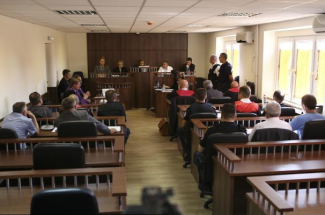Democratic backsliding happens in many ways and is driven by both internal and external factors. But countries with strong, independent judicial institutions capable of self-governance may be less susceptible to backsliding when they are equipped to select, monitor, discipline, and train judges over an extended period. To build those systems that can prevent backsliding, USAID supported councils of justice and judicial training centers, many of which were created with USAID assistance before 2005.
In Bosnia and Herzegovina, USAID assistance to the High Judicial and Prosecutorial Council enabled them to reshape the justice system by moving from a Ministry of Justice led process to a more transparent, independent, and self-governing judiciary. In Kosovo, USAID supported restructuring the Kosovo High Judicial Council Secretariat allowing members to fulfill their mandate more effectively. In South Africa, USAID supported the transfer of essential judicial services and administrative duties from the Department of Justice and Constitutional Development, which was housed in the executive branch, to the independent Office of the Chief Justice.
Full report can be found at: Rule of Law Achievements Review

